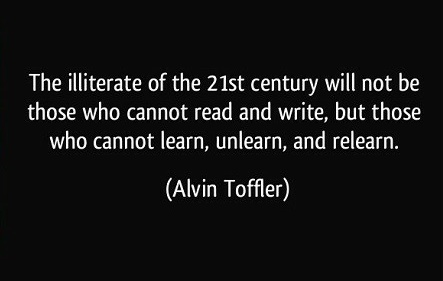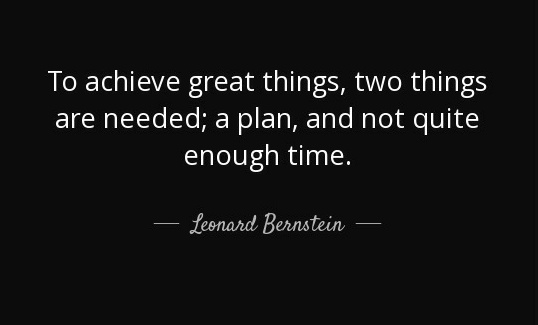This thread is the summary of a course I recently did on "Learning How to Learn for Youth" from @ASU
The link to the entire course is at the end.
Note– I have not written this by myself. I have just compiled it from different sources.
The link to the entire course is at the end.
Note– I have not written this by myself. I have just compiled it from different sources.
Let us break this down into two parts.
Focused thinking
Focused thinking involves working on a singular task, like reading this thread.
Diffused thinking happens when you& #39;re not focused on anything, like when you are taking a walk.
Learning happens at the crossover of these two kinds of thinking.
It you want to learn something, it& #39;s important to take advantage of these two kinds of thinking.
Combine intense periods of focus with intense periods of nothing.
It you want to learn something, it& #39;s important to take advantage of these two kinds of thinking.
Combine intense periods of focus with intense periods of nothing.
You set a timer and do nothing except what you wanted to work on for the duration.
Even if it gets difficult, you keep working on it until the timer is done.
A typical one is 25-minutes of focused work with a 5-minute break afterwards.
But you can choose.
30/10
45/15
60/ 10
If 25-minutes is too long, start with 10 and make your way up.
But you can choose.
30/10
45/15
60/ 10
If 25-minutes is too long, start with 10 and make your way up.
There& #39;s a reason famous thinkers like Einstein and Salvatore Dali would sleep for 10-hours at a time and tap multiple naps during the day.
Being in focused mode is to brain cells what lifting weights is to muscles.
You& #39;re breaking them down.
Sleep provides an opportunity for them to be repaired and for new connections to be formed.
Sleep provides an opportunity for them to be repaired and for new connections to be formed.
Spaced repetition involves practising something in small timeframes and as you get better at it, increasing the amount of time between each timeframe.
Don& #39;t break the chain. Do it every day.
Go over the difficult stuff more often.
You don& #39;t have to learn every intricate detail about a topic from the get go.
Seek out what the major concepts are and learn them.
Spending more time on the things you find more difficult is how an average mind turns into a great one
You upgrade your smartphone& #39;s software but...
When was the last time you upgraded your thinking?
When learning something new, have an open mind.
Think like an amateur. Ask stupid questions.
This is how you learn.
Practice recalling what you read so far.
Don& #39;t scroll back up.
Think about what you just read and try to articulate it in your own words.
This is what helps you understand what you have learnt and what you *think* you have learnt.
Rereading the same thing over and over again can give you an illusion of understanding it.
But recalling it and reproducing the information in your own words is a way to figure out which parts you know and which parts you don& #39;t.
But recalling it and reproducing the information in your own words is a way to figure out which parts you know and which parts you don& #39;t.
Don& #39;t think about the outcome right at the beginning.
Writing a bestselling book is hard.
But making a habit of writing every day isn& #39;t that hard.
Make a to-do list the night before.
This reduces the cognitive burden to make decisions throughout the day.
Have a finishing time too.
I found this quote a while back—
Learning tough skills doesn& #39;t happen over the course of days or weeks or months.
Years is the right timeframe for most things.
If you believe you can& #39;t learn something, you& #39;re right.
It you believe you can learn something, you& #39;re right.
Book recommendations—
"Learn How to Learn for Youth" by @barbaraoakley and @sejnowski
"Make it Stick" by Peter C. Brown
"The Art of Changing the Brain" by James E. Zull
Course link https://abs.twimg.com/emoji/v2/... draggable="false" alt="👇" title="Rückhand Zeigefinger nach unten" aria-label="Emoji: Rückhand Zeigefinger nach unten"> https://www.coursera.org/learn/learning-how-to-learn">https://www.coursera.org/learn/lea...
https://abs.twimg.com/emoji/v2/... draggable="false" alt="👇" title="Rückhand Zeigefinger nach unten" aria-label="Emoji: Rückhand Zeigefinger nach unten"> https://www.coursera.org/learn/learning-how-to-learn">https://www.coursera.org/learn/lea...
"Learn How to Learn for Youth" by @barbaraoakley and @sejnowski
"Make it Stick" by Peter C. Brown
"The Art of Changing the Brain" by James E. Zull
Course link
If you found value in this thread, a retweet would be appreciated :) https://twitter.com/thinkingovertea/status/1330915734763888640?s=19">https://twitter.com/thinkingo...

 Read on Twitter
Read on Twitter
 Free up your working memoryMake a to-do list the night before.This reduces the cognitive burden to make decisions throughout the day.Have a finishing time too.I found this quote a while back—" title="https://abs.twimg.com/emoji/v2/... draggable="false" alt="9️⃣" title="Tastenkappe Ziffer 9" aria-label="Emoji: Tastenkappe Ziffer 9"> Free up your working memoryMake a to-do list the night before.This reduces the cognitive burden to make decisions throughout the day.Have a finishing time too.I found this quote a while back—" class="img-responsive" style="max-width:100%;"/>
Free up your working memoryMake a to-do list the night before.This reduces the cognitive burden to make decisions throughout the day.Have a finishing time too.I found this quote a while back—" title="https://abs.twimg.com/emoji/v2/... draggable="false" alt="9️⃣" title="Tastenkappe Ziffer 9" aria-label="Emoji: Tastenkappe Ziffer 9"> Free up your working memoryMake a to-do list the night before.This reduces the cognitive burden to make decisions throughout the day.Have a finishing time too.I found this quote a while back—" class="img-responsive" style="max-width:100%;"/>


